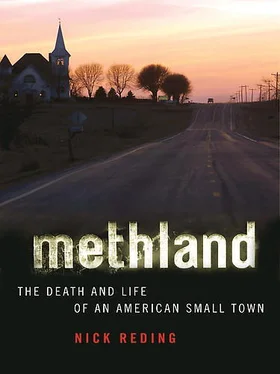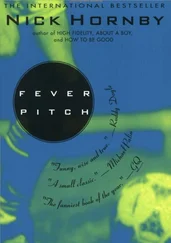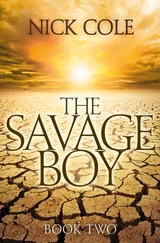David was Nathan’s closest confidant; being raised together in that house on the prairie gave them a shared understanding. It was thanks to David, who’d had the courage to get out of Iowa for good, that Nathan could see that leaving wasn’t an ideal solution. And it was thanks to Nathan for having the courage to return home that David still had an advocate for him with his difficult mother and his stepfather, not to mention a connection to the place where he’d grown up. When David died, Nathan was crushed.
Nathan’s parents had no money to go to California for a funeral. So it was he who went to get David’s cremated remains and bring them back to Iowa. Burying his brother was the hardest thing Nathan Lein ever did. He said a few days afterward that it would be a long time before he was “right again.” Three years later, he still, he said, wasn’t right.
But David’s death had also offered Nathan a solution to the Girl Problem. He didn’t ask Jenny to accompany him to the funeral—he asked the DHS caseworker, whose name is Jamie Porter. Why he did so was unclear. Perhaps, he said, David’s death put his own life in perspective. After the funeral, Nathan unburdened himself to Jamie of all the secrets he’d kept pent up for twenty-eight years. And so, as the town of Oelwein began rebuilding itself from the ashes of the meth epidemic, so began a new era in Nathan’s life, born out of the ashes of his brother’s death.
Jamie Porter is a year younger than Nathan. Standing next to him, she looks small, even at five feet seven. She has blond, shoulder-length hair and blue eyes bordered by long, delicate lashes. With her red cheeks and porcelain skin, she has the flushed, healthy look of someone just coming in from the cold. She attended Wartburg College in her nearby hometown of Waverly, Iowa, where she was an All-American softball player as a second baseman. She is still built in a way that suggests a home-run threat: strong, powerful legs and wide shoulders. She knows her way around a pheasant stew and is perfectly at home in a tent pitched somewhere on the Volga River. In the evenings during December’s late bow-and-arrow deer-hunting season, Jamie is known to climb into the tiny hayloft above Nathan’s woodstove-heated garage and sit next to the swing-door. There she can look down on a small field bordered on one side by an unincorporated spit of timber and on the other by the neighboring houses; Nathan’s street defines the point at which Oelwein ends and the country begins. Dressed in heavily insulated camo coveralls, with a book in one hand and a cup of tea in the other, Jamie waits in the ambient heat of the woodstove for the whitetails to pass through the field. Next to her is the bow Nathan bought her for their first Christmas together. To date, she has killed three deer from the garage window—two bucks and a doe.
Jamie has an undergraduate degree in psychology. She has worked since mid-2006 as a contractor for the Iowa Department of Human Services. DHS contractors are assigned cases by the courts; much of their work is in-home visits. On a typical day, Jamie might have three appointments: one with a child who has complained of physical abuse; one with a child whose mother or father is in jail for manufacturing meth; and a third with a recent parolee in the halfway house in West Union. Aside from the Northeast Iowa Behavioral Health Clinic, which has only six employees, there isn’t much in the way of other job opportunities for social workers in Oelwein.
Working with DHS, where she’s essentially a freelancer, gives Jamie the feeling that she is doing all she can in order to help people who would otherwise not be given any help. The job’s frustrations, she says, stem in part from the fact that Jamie sees a lot of the same people over and over again. Trouble often seems to wrap itself around certain families—the Jarvis clan is one—whose members show up constantly in jail, in halfway houses, and on Jamie’s list of appointments. The rest of her frustrations Jamie characterizes in stark economic terms. Rural Iowa grows older and smaller each year, while the number of cases Jamie is assigned seems to stay stable. The region’s poverty means there are more problem behaviors, and also less money to minister to those behaviors—especially under the kind of long-term treatment that Jamie says would be needed in order to turn a family like the Jarvises around.
What Larry Murphy says is that there is always greater pressure amid a fiscal crisis to cut spending altogether on non-revenue-generating programs like human services. Fayette County and the town of Oelwein are businesses like any other, and presently both of them are losing money. Sociologist Douglas Constance’s observation that ours is a psychological rather than a socio logical culture is once again apt. Much of what Jamie has to deal with are the ravages of meth; when one is forced to choose between blaming the addict and blaming the system that created the addict, it can be difficult to blame the former. During the late summer of 2005, three of the five members of the Jarvis family—Roland, his mother, and his brother—were in jail on drug-related charges. The brother was in federal prison and would not be paroled for another half decade. Instances like this make Jamie wonder if some people can ever be helped.
The instinct to assume that the Jarvises will not change no matter how much the state intervenes might begin to explain how Jamie was out of work for over a year, between mid-2005 and mid-2006. The theory of one of Jamie’s co-workers was that, with money tight all over Iowa and public sympathy at ebb tide regarding drug addicts, it had become more convenient than ever for state government to look at a man like Roland Jarvis and throw in the towel. In that same year, says the co-worker, nine out of ten social workers in northeastern Iowa lost their jobs. As a result, Jamie had taken the only job she could find, as a bartender in a little town called Strawberry Point, twenty miles northeast of Oelwein. During this difficult time, Jamie moved in with Nathan. She could get only a few shifts a week, mostly during the daytime; the woman who worked nights had no intention of handing Jamie the only lucrative shifts in a small-town bar. Money was short, given Nathan’s modest state salary, and Jamie spent a lot of time around the tiny house, trying to keep busy. The arguments she had with Nathan were a case study in relationships being tested by hard financial times. For his part, Nathan couldn’t understand why Jamie didn’t get up and go do more—though exactly what more she should be doing wasn’t clear. From her perspective, she’d gone and gotten the work that was available, even if it embarrassed her: she was too well educated to work in a bar, never mind a bar that was forty miles away, round-trip, in a time of rising gas prices. What did he want her to do beyond swallow her pride and work as best she could? She said to Nathan over and over that she was the only one who hated all the time she had on her hands more than he did.
Meantime, Nathan kept up his usual schedule of working at the office during the day and going to the farm at night. His parents loved Jamie; they’d met her at David’s funeral and taken an immediate liking to her. Unaware that they were living together, Nathan’s father asked him all the time if he’d heard from Jamie or seen her. He wanted to know why Nathan didn’t bring her to the farm at night to help, or why Nathan didn’t bring her by for Thanksgiving supper or on Christmas eve. It’s an interesting question, and one that Jamie herself was anxious to know the answer to. After all, she and Nathan were living together in a small, tight-knit, gossipy community just twelve miles away from Nathan’s parents. It couldn’t long remain a secret that they were in love and were living in sin. Nathan’s parents might be Luddites, but they weren’t living on Mars. And if Nathan was so adamant that Jamie do more than work in a bar while she waited for another social worker position, then why didn’t he bring her to help at the farm? That was the good, honest kind of work that Nathan could respect, and it would help his family, to boot. What was with all the secretiveness?
Читать дальше












